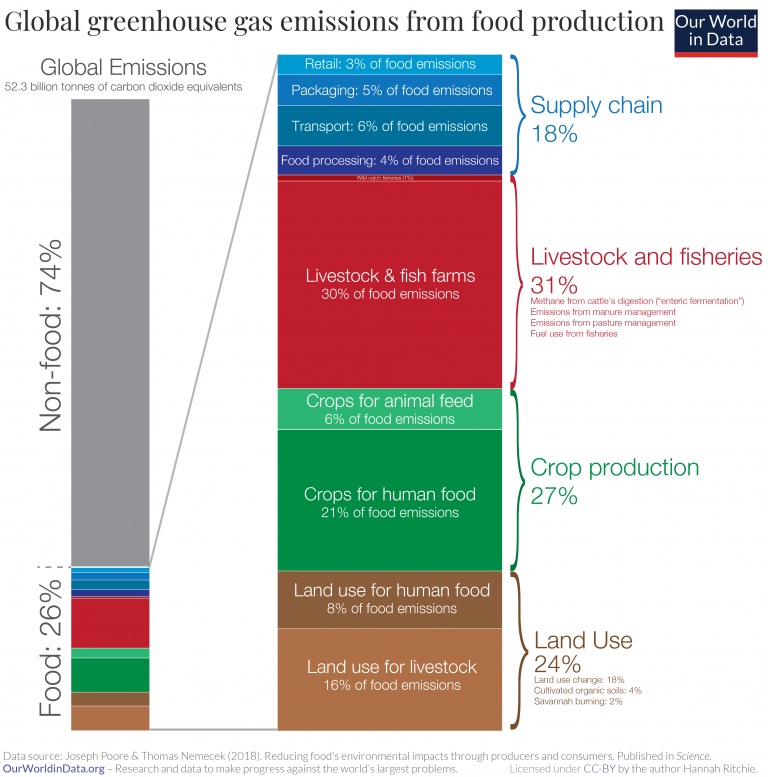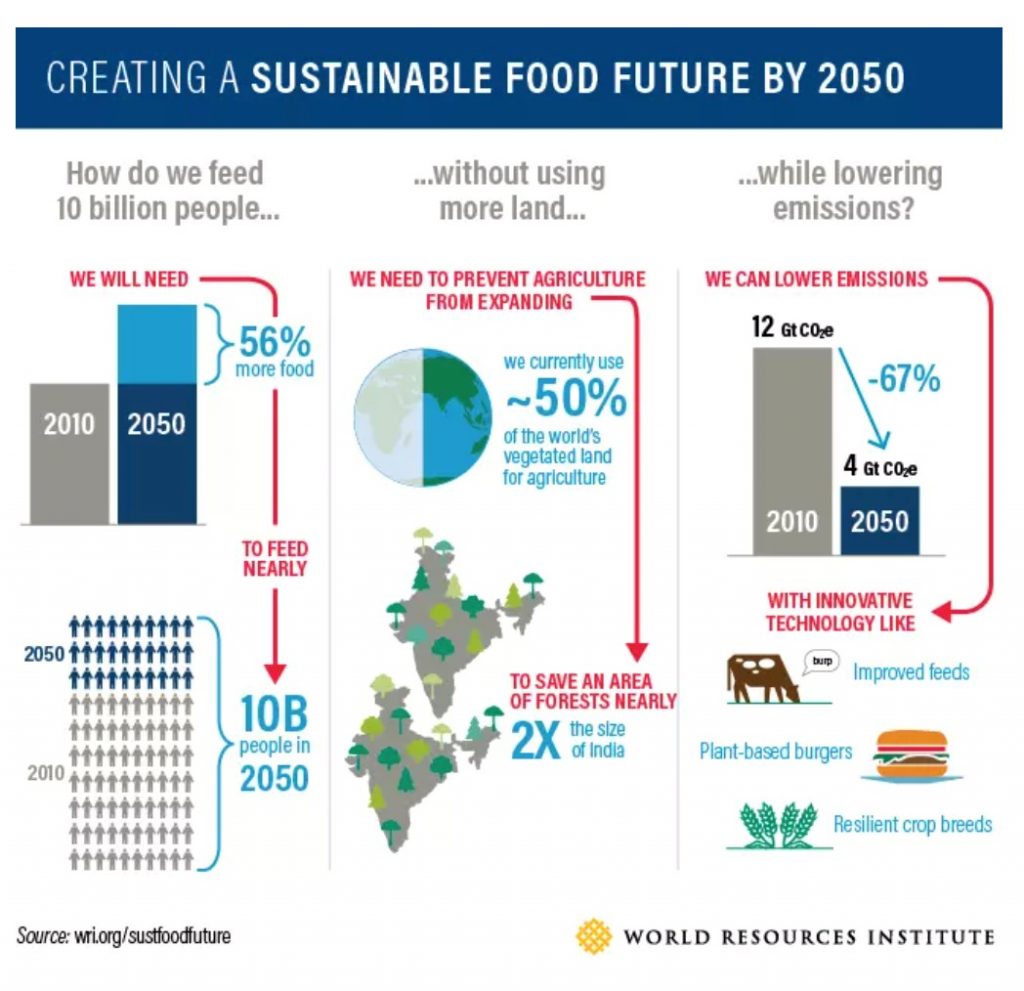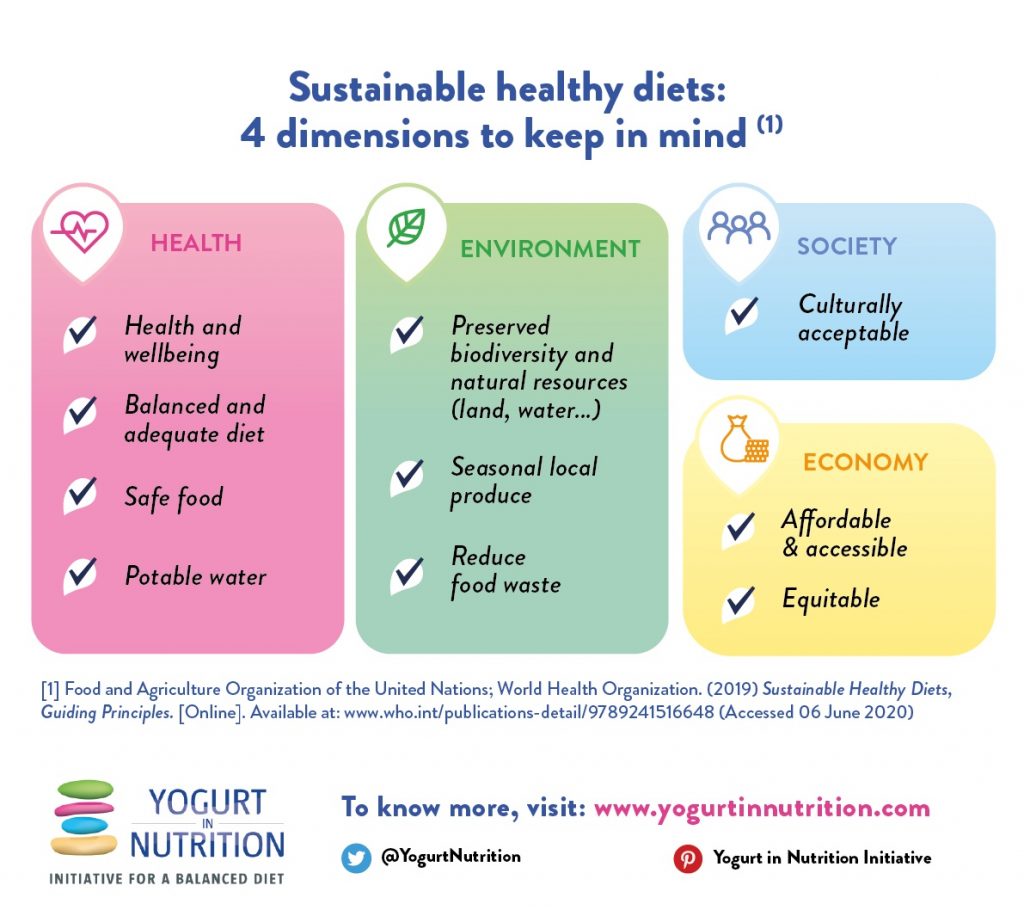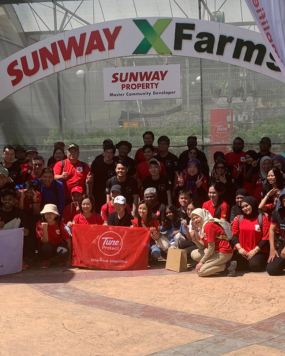
Do you eat to live or live to eat? Food is no longer just for survival but to also spread joy and bring people together. However, with our current food consumption patterns – overeating while creating more food waste, combined with unprecedented land degradation for agriculture and climate change, we will not be able to feed everyone by 2050. At the same time, there are 700 million people who are undernourished. Unhealthy diets have fast become one of the leading causes of death, killing more people globally than drug, alcohol and tobacco use combined.
From the environmental aspect, our current food systems contribute up to 26% of global greenhouse gas emissions and one-third of the land is degraded due to intensive and unsustainable farming practices, causing loss of productive land. It is predicted that crop yield will decrease as much as 50% in certain regions. Moreover, degraded land also means soil depletion, which produces low nutritional value crops.

According to a research by WWF, there is growing body of evidence suggesting that a global shift toward healthier and more sustainable diets will mitigate climate change and food insecurity, improve human health, create more resilient supply chain, decrease the risks of future pandemics, and could unleash a potential of USD 4.5 trillion in new business opportunities each year.

What is a sustainable healthy diet?
Sustainable diets are those that contribute to nutritional and food safety while minimizing environmental impact, at the same time maintaining the ecosystems and biodiversity while being accessible and economically fair. In simple terms, a diet that is healthy and safe for both people and the planet.

What we can do as individuals:
1. Eat a plant-based diet
Currently, livestock takes up nearly 80% of global agricultural land, causing mass tropical forest clearing and enormous amounts of water consumption but yet producing only <20% of the world’s supply calories. It is also one of the main contributors of greenhouse gasses emissions. Eating a plant-based diet does not mean to go meatless or vegan completely but to replace some of the protein from meat especially red and processed meats with more alternative proteins such as whole grains, nuts and seeds, or fruits and vegetables.
2. Diversify your diet
Did you know that despite there being about 30,000 edible plant species, >40% of our daily calories come from only three staple crops: rice, wheat and maize. Biodiversity is crucial for our environment and reduces the impacts of climate change. Having more varieties on our plate can demand a variety in agriculture.
3. Reduce and repurpose your food waste
One-third of food is wasted globally which is equivalent to an agricultural land area larger than both Canada and India combined. Moreover, the disposal of food waste in landfills leads to increased greenhouse gasses emissions, further exacerbating our environment. We can play our part on reducing food waste by meal planning, not throwing away the ugly-but-edible vegetables, freezing leftovers and composting food scraps as organic fertilizers for soil.
4. Support seasonal local produce
By supporting local food production, you are not only buying the freshest and most nutritious food due to less food miles, but also a key to supporting sustainable agriculture and the local economy.
Sources:
World Economic Forum
WWF
Food and Agriculture Organisation of United Nations (FAO)
This article first appeared on Sunway iLabs blog.



